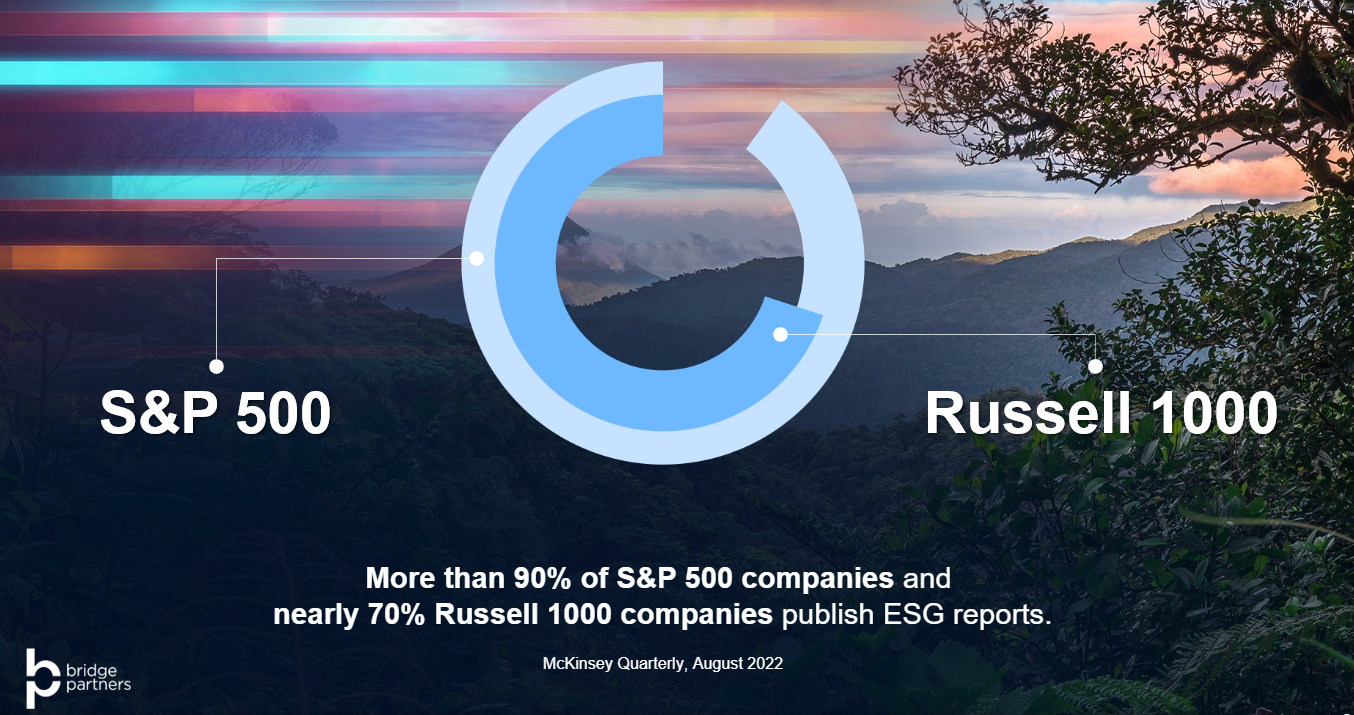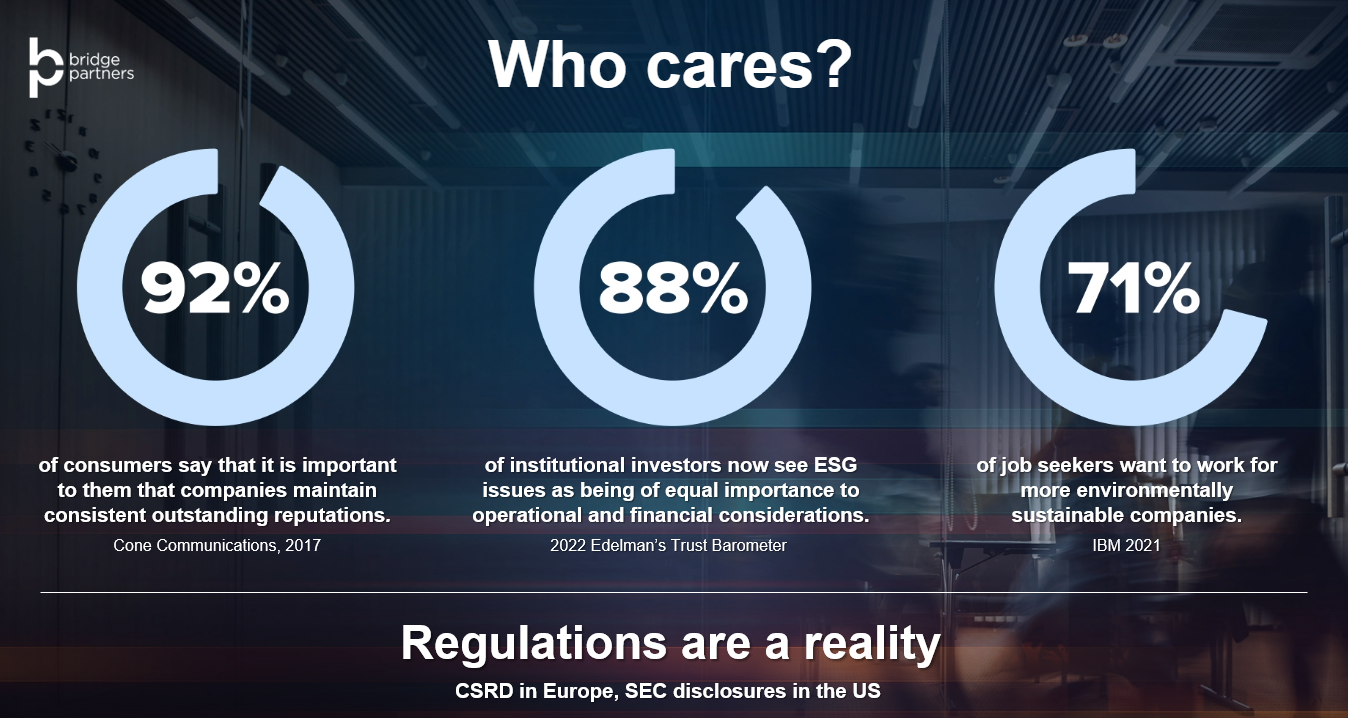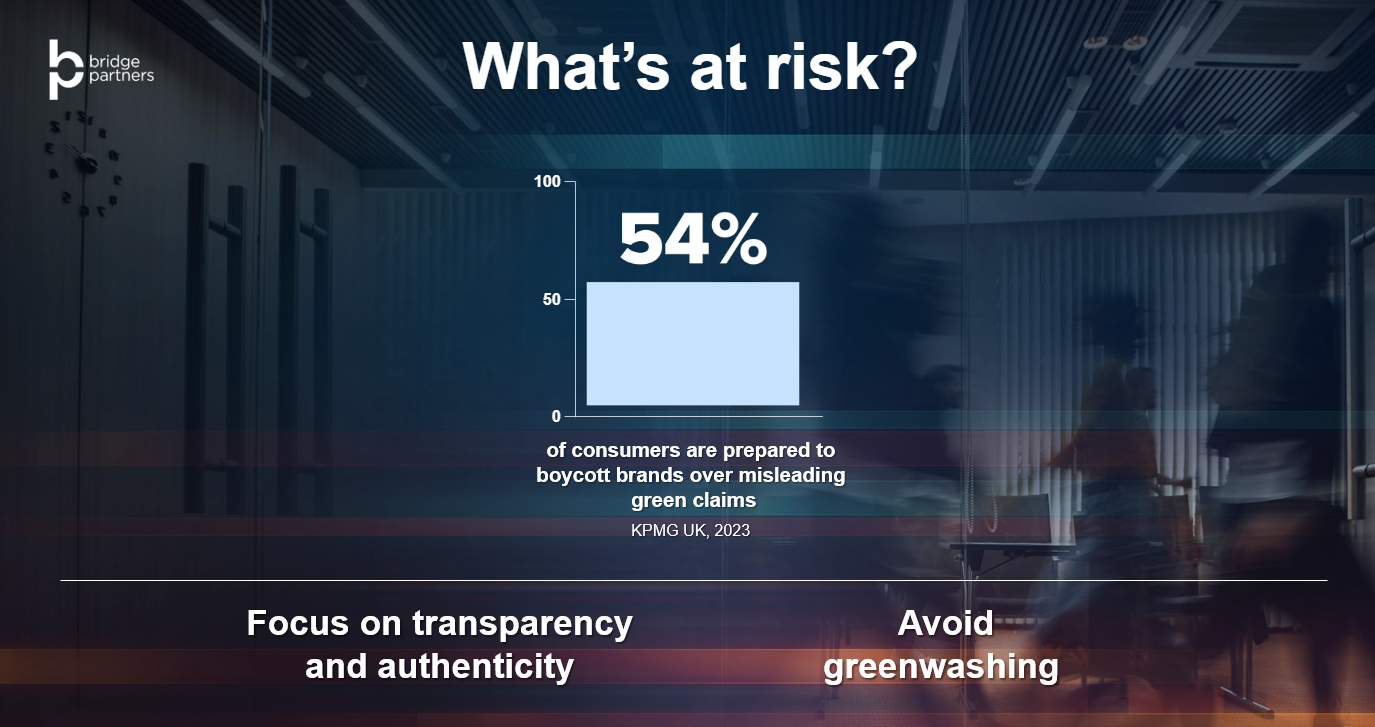
Sustainability is a critical business issue. It's not just about doing the right thing for the planet, it's also about good business sense. Customers are increasingly demanding sustainable products and services, investors are looking to invest in sustainable companies, and employees want to work for sustainable businesses. Not only that, but regulatory requirements are also part of business reality today in the EU and will continue to expand across the globe.
So, if you're not already thinking about sustainability, it's time to start. Businesses that focus on sustainability can reduce their costs, improve their reputation, manage risk, and attract new customers and investors.
In this blog post, we'll explore why sustainability matters, who cares about it, what's at risk, and why marketers should pay attention.
What is Sustainability and Why is it Important for Businesses?
Why Sustainability Matters
Sustainability is a business strategy that focuses on meeting the needs of the present without compromising the ability of future generations to meet their own needs. It involves considering the ESG (environmental, social, and governance) impacts of business decisions. It is the practice of using these three factors to evaluate the sustainability of companies and countries. It encompasses the critical challenges of our time, including climate change, human rights, and adherence to laws.
Sustainability: A Top Priority for Modern Businesses
Sustainability has gained prominence as the climate crisis takes center stage in global conversations. Customers, investors, and employees are increasingly curious about how companies are addressing their environmental and social impacts. Regardless of your company's size or industry, addressing sustainability is crucial because it:
- Improves Corporate Reputation: Demonstrating a commitment to sustainability can enhance your company's reputation and credibility.
- Builds Confidence: It instills confidence in your company and brand, both internally and externally.
- Reduces Corporate Risk: Sustainability initiatives can help mitigate risks associated with environmental and social factors.
- Fosters Innovation: Sustainability encourages innovative solutions within your company and industry.

Who Cares About Sustainability?
A Broad Audience
You might wonder if sustainability truly matters to your company. The answer is a resounding "YES!" Sustainability is essential to customers, investors, employees, and regulators alike.
Consider these compelling statistics:

Regulatory requirements are increasing, with the EU leading the way through policies like the Corporate Sustainability Reporting Directive (CSRD) which requires enhanced sustainability reporting. Even the U.S. SEC is poised to mandate emissions reporting in the near future.
What's at Risk if Businesses Don't Focus on Sustainability?
Protecting Your Reputation
Your company's biggest risk is reputational damage. The world is becoming more discerning about greenwashing – deceptive or empty claims regarding the environmental or social merits of products or services.
Greenwashing poses significant reputational risks because it erodes trust among stakeholders. A recent UK survey found that 54% of consumers would stop buying from companies making misleading green claims.

Other risks include:
- Increased costs: Businesses that are not sustainable may face higher costs in the future, such as the cost of complying with new regulations or the cost of adapting to climate change.
- Lost opportunities: Businesses that are not sustainable may miss out on new opportunities, such as the opportunity to attract new customers or investors who are interested in sustainability.
Increased Attention on B2B Companies
The reputational risk of greenwashing or empty green claims spans B2B and B2C operating models. It garners more attention in B2C models, but B2B organizations need to be just as aware of the risks of empty green claims.
For example, the Science Based Targets Initiative (SBTi) was established in 2015 and is used by thousands of companies worldwide to register science-based climate targets. This August, SBTi singled out 22 US companies for not filing science-based climate targets that meet their requirements. In previous years, SBTi would simply remove these companies from their portfolio list, but recognizing the growing interest in greenwashing and transparent accounting of environmental impact, SBTi decided to publish the companies they removed from their portfolio instead of just deleting them. This included massive US companies across industries – garnering significant press pickup and prompting reactive corporate statements and responses.
As marketers, it's our responsibility to prioritize transparency and authenticity, avoiding greenwashing at all costs.
Get Ready to Take Action
Sustainability is no longer a choice but a necessity for businesses. It affects your reputation, customer loyalty, investor confidence, and regulatory compliance. Embracing sustainability and communicating your efforts transparently is not only good for the planet but also for your bottom line and long-term success.
Start framing your sustainability narrative today to ensure a brighter and more sustainable future for your company—and the world.
Need Help? At Bridge Partners, we stand at the intersection of sustainability and storytelling; we've carved out a niche in helping businesses navigate the complex landscape of environmental responsibility. With our extensive experience, which includes serving over half of the top global tech and cloud leaders, we're well-equipped to shed light on the vital role sustainability plays in modern content marketing. Learn more about our Sustainability Service Line.
